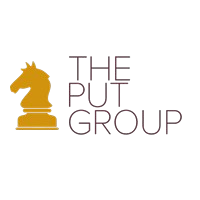As technology continues to evolve at a rapid pace, the need for skilled professionals who can navigate and lead within this dynamic environment has never been greater. Project Management Offices (PMO) and IT staffing are central to this effort, playing a critical role in driving efficiency, managing complex projects, and ensuring that businesses stay ahead in the face of constant change. The future of PMO and IT staffing will be shaped by new technological advancements, changing workforce dynamics, and the demand for greater agility.
Here’s a look at how these areas are evolving and what organizations must do to unlock their full potential in this rapidly shifting landscape.
1. The Rise of Agile and Hybrid Project Management
Traditional PMOs have often been associated with rigid structures and processes, but the future lies in agility and adaptability. As more companies embrace agile methodologies, PMOs are transitioning from control-focused entities to strategic enablers that prioritize flexibility and responsiveness.
In the future, PMOs will increasingly adopt hybrid project management approaches, blending agile methods with traditional frameworks like Waterfall to create customized solutions that suit the specific needs of a project. This shift enables organizations to handle diverse project types—whether they require iterative development or precise, linear execution—while staying adaptable to change.
For IT staffing, this means an increased demand for professionals who not only understand project management principles but are also versed in agile practices and can work seamlessly in environments where change is constant.
2. Demand for Multi-Skilled Talent
The rapid development of technology is creating an environment where specialization is important, but so is versatility. Future PMO and IT teams will need professionals who possess a broad range of skills across various disciplines. For instance, project managers with experience in both traditional and agile methodologies will be more valuable, as will IT staff who can work across cloud platforms, cybersecurity, data analytics, and software development.
As automation and AI take on more routine tasks, human talent will increasingly focus on higher-level strategic thinking, problem-solving, and innovation. To stay competitive, businesses will need to invest in continuous training and development for their workforce to ensure they remain equipped with the latest skills and capabilities.


3. Remote Work and Global Talent Pools
The pandemic ushered in a new era of remote work, and its effects on PMO and IT staffing will be long-lasting. Many companies have realized the benefits of a remote or hybrid workforce, and this trend is expected to continue. The future of PMO and IT staffing will be characterized by global talent pools, where geographical boundaries are less relevant in hiring decisions. This opens up opportunities for companies to access specialized skills from anywhere in the world.
For organizations, the challenge will be in effectively managing and integrating remote teams. PMOs will need to adapt their processes to accommodate virtual collaboration, distributed project management, and diverse time zones. Investing in the right tools and technologies to support remote work will be crucial for ensuring that productivity and team cohesion remain high.
For organizations, the challenge will be in effectively managing and integrating remote teams. PMOs will need to adapt their processes to accommodate virtual collaboration, distributed project management, and diverse time zones. Investing in the right tools and technologies to support remote work will be crucial for ensuring that productivity and team cohesion remain high.
4. Leveraging Automation and AI in PMO and IT Functions
Automation and artificial intelligence (AI) are transforming how businesses operate, and their impact on PMO and IT staffing will be profound. AI-driven tools can automate routine project management tasks, such as scheduling, risk analysis, and performance tracking, allowing project managers to focus on higher-level strategic activities.
In IT staffing, AI can enhance recruitment processes by streamlining candidate sourcing, resume screening, and matching candidates to job requirements. This allows businesses to find the right talent faster and more efficiently. Additionally, automation can assist in monitoring project milestones, resource allocation, and even identifying potential project bottlenecks before they become critical.
The future will see PMOs and IT teams using AI not only as a support tool but as a strategic asset that drives innovation, optimizes workflows, and improves decision-making.
5. Focus on Cybersecurity and Data Privacy
As digital transformation accelerates, so does the need for robust cybersecurity measures. Data breaches and cyberattacks are becoming more sophisticated, and organizations must prioritize cybersecurity to protect sensitive information and ensure compliance with regulations.
For PMO and IT staffing, this means a heightened demand for cybersecurity professionals who can secure networks, implement advanced encryption methods, and manage data privacy protocols. PMOs will need to incorporate cybersecurity risk management into their project planning, ensuring that security is not an afterthought but a fundamental part of the project lifecycle.
Training existing staff on cybersecurity best practices and compliance requirements will also be key, as even non-technical teams must be aware of the risks and how to mitigate them.
6. Strategic Workforce Planning for the Future
The future of PMO and IT staffing will require organizations to take a more strategic approach to workforce planning. As the tech landscape continues to evolve, businesses must anticipate future skills needs and proactively build teams that are equipped to handle emerging challenges.
This involves not only hiring the right talent but also creating an environment where employees can continuously learn and grow. Upskilling and reskilling programs will be critical for retaining top talent and ensuring that teams are prepared to navigate new technologies, tools, and methodologies.
Conclusion
The future of PMO and IT staffing lies in adaptability, innovation, and strategic workforce management. As the tech landscape continues to evolve, businesses must be ready to embrace new ways of working, new tools, and new skillsets. By focusing on agility, leveraging global talent pools, integrating AI and automation, and prioritizing cybersecurity, organizations can unlock the full potential of their PMO and IT teams and stay ahead in a rapidly changing world.
Ultimately, success in this future landscape will depend on how well businesses can balance technology with human talent—creating teams that are not only capable but also resilient and innovative in the face of constant change.

